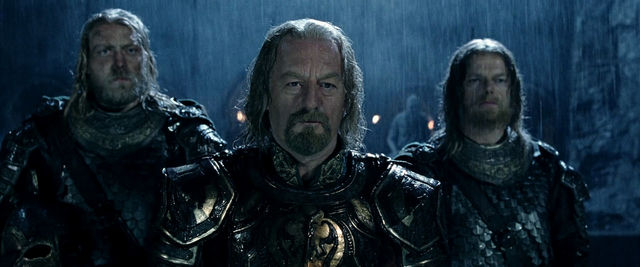Seeking Peace In A World Of Strife
Conflict is the backbone of any story.
Sometimes it involves a desperate quest to save the world. Other times it dives into the murky waters of relationship problems. Even if a story doesn’t contain explosions, high-speed chases, epic battles, or other obvious displays of conflict, it still exhibits conflict on some level.
In fact, the more I read and pay attention to my reactions at certain parts, the more I’ve realized the quieter conflict is actually more compelling. Not the ADD scene where the superhero is simultaneously fighting off a dozen baddies, but the tense pause before you find out someone the hero trusts is actually a spy.
Without conflict, a story is bland, uninspiring, boring. Why is that? Furthermore, what’s the purpose behind the endless highway of problems down which the characters travel?
Stories are supposed to reflect real life. We identify with the characters, we picture the setting, we understand the situation even if we’ve never experienced it ourselves. On the other hand, writers know well that people love to read about things they would hate to endure in real life.
Enter the strife.
Conflict, Conflict Everywhere
With some stories, the string of struggles is as long as a dragon’s tail. Will it never end for the poor characters?
The thing is, this problem manifests in real life, too. Because we live in a world stained by sin, we’ll never fully escape the consequences. Some days, we feel like Draco Malfoy is torturing us or that life resembles the battle at Helm’s Deep—in all the worst ways.

Preparing for battle
The conflict we read about mirrors the conflict assailing us.
And like the characters in the story, we long for peace. Why? Because we sense the broken nature of the world. We hear about terrorists shooting innocent people or go through a nasty breakup with someone we considered a friend. A corner of us recoils. Everything about the situation feels wrong. Intuitively, we seek peace, veiled though it is by a world of strife.
That’s where the truth of stories rings most potently. At the end of the day, every tale involves a pursuit of peace.
- Saving Middle-earth from Sauron
- Destroying the tyranny of the Capital
- Restoring Narnia from the grasp of the White Witch
All the battles—physical, mental, and emotional—drive toward a single goal. The light at the end of the tunnel. The achievement of peace, however fragile or fleeting. I submit that stories do this because it reflects the eternal truth of our story, of history.
As Jill says in The Last Battle:
“Oh, this is nice. Just walking along like this. I wish there could be more of this sort of adventure. It’s a pity there’s always so much happening in Narnia.”
To which Jewel replies with tales of peaceful times. The picture he paints causes Jill to exclaim:
“Oh, I do hope we can soon settle the Ape and get back to those good, ordinary times. And then I hope they’ll go on forever and ever and ever.”
Books begin with something wrong in need of fixing. Sometimes it’s an internal struggle, sometimes an external conflict. Typically, it’s both. As the story progresses, the characters come closer to overcoming the problem and bringing life into a state of peace.
Many variations exist, but generally speaking, the story concludes with a satisfying resolution. Using Lord of the Rings as an example, Frodo completes the quest, the enemy is vanquished, the hobbits save the Shire, and a time of peace begins.
Conflict may be the fuel in a story’s engine, but the destination is one where the characters have managed to find at least a glimpse of peace in a world of strife.
The True Story of Peace
With Christmas near, we’re more inclined to turn our attention to this stark contrast presented by our world. After all, what represents the core of this peace-amid-strife concept more than God’s intervention in our strife-filled lives to breathe a Word of peace?
The lines from I Heard the Bells on Christmas Day offer a poignant reminder:
And in despair I bowed my head;
“There is no peace on earth,” I said:
“For hate is strong,
And mocks the song
Of peace on earth, good-will to men!”
Then pealed the bells more loud and deep:
“God is not dead; nor doth he sleep!
The Wrong shall fail,
The Right prevail,
With peace on earth, good-will to men!”
This Christmas, instead of dwelling on the external lack of peace surrounding us—terrorist attacks, hospitalized loved ones, the Syrian refugee crisis—we can rest in the peace God grants.
Won for us by the Prince of Peace, who was born in a stable two millennia ago. Whose coming signaled the truth: one day, the strife will end, and there will be peace.
MERRY CHRISTMAS!





































Awesome post. Thank you for sharing. Loved it!